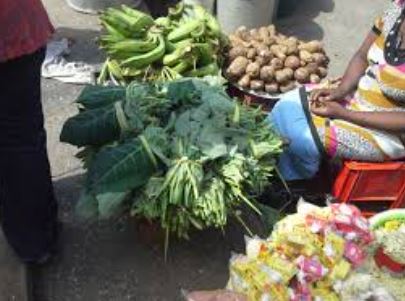Kontomire, a beloved leafy vegetable in many Ghanaian homes and widely praised by nutritionists for its health benefits, is now at the center of a troubling discovery. A recent study has revealed the presence of mercury and other toxic heavy metals in Kontomire samples collected from six regions across Ghana.

The year-long investigation, titled Mercury and Other Heavy Metals Impact Assessment, was conducted from August 2024 to September 2025 by Pure Earth in partnership with the Ghana Environmental Protection Agency (EPA). The study focused on galamsey (illegal mining) hotspots, analyzing soil, water, air, fish, and food crops in the Ashanti, Eastern, Central, Western, Western North, and Savannah regions.
Researchers found alarming levels of mercury, arsenic, and lead contaminating the food chain, posing serious public health and environmental risks. Communities living near mining areas face exposure through multiple pathways—contaminated soil, unsafe water, polluted air, and toxic food sources. The most vulnerable groups include children, farmers, and miners.
Dr. Emond Quansah, Country Director of Pure Earth, highlighted the severity of the findings: “We detected the presence of mercury, lead, arsenic in the food chain. We are talking about pork tenderloins, we are talking about kontomire, all these have heavy concentration of mercury, lead, and arsenic in them.”
He warned, “What it means for the ordinary Ghanaian is that he or she is at risk of poisoning from eating, any of this contaminated food that has the presence of these heavy metals, mercury, lead, arsenic in them.”
The report calls for urgent action to address this public health threat, emphasizing that prolonged exposure to these heavy metals can increase the risk of cancer, neurological disorders, kidney damage, and developmental problems in children.
Pure Earth and the EPA urge swift interventions to mitigate contamination and protect the health of affected communities.
Story by: Elikplim Awuku





